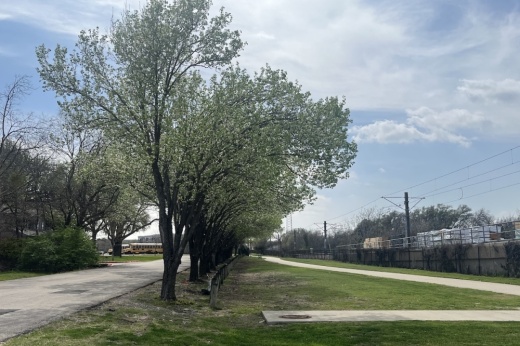Richardson City Council received recommendations on potential regulations for trees on all properties, excluding single-family residences, that would require tree replacement, minimum tree planting and a payment in lieu of tree replacement during its March 4 meeting.
The overview
As part of the regulations, the city would define protected, unprotected and specimen trees, Assistant City Manager Charles Goff said. Protected trees are any trees that are at least 6 caliper inches, which pertains to the diameter of the tree, up to 24 inches, unless they are classified as part of the select list of unprotected species. Specimen trees are at least 24 caliper inches, unless they are classified as unprotected.
The city also updated its standard construction details, which establish expectations for contractors in Richardson, in February.
“If we start to go through a zoning stage, we start to identify those trees up front,” Director of Development Services Sam Chavez said. “We speak with the developer and applicant about those trees and why they can’t be saved.”
The proposed penalty for an ordinance violation would be $2,000 per tree, per day. The city’s development services department will be responsible for receiving and approving tree removal permits in consultation with the parks department, Goff said.
The details
There were four policies presented to council, based on Goff’s presentation.
- Requiring the replacement of 1 caliper inch per caliper inch removed for tree species on the city’s protected list
- Requiring the replacement of 2 caliper inches per caliper inch removed for tree species on the city’s specimen list
- All planted trees must be at least 3 caliper inches and 14 feet tall at the time they are put in the ground.
- Property owners could pay $200 per caliper inch removed.
What’s next?
Goff said city staff would utilize new requirements during the planning process for future capital projects as well as applying them to private contractors. According to city documents, city staff compared its proposed mitigation requirements to other cities’ regulations.
“By implementing standards where you have to mitigate trees you are taking out or pay into a fee, our hope is that developers will come in and be a little more mindful of existing trees and make those adjustments we’re talking about,” Goff said.
No date was given for future consideration of an ordinance update during the staff briefing.





